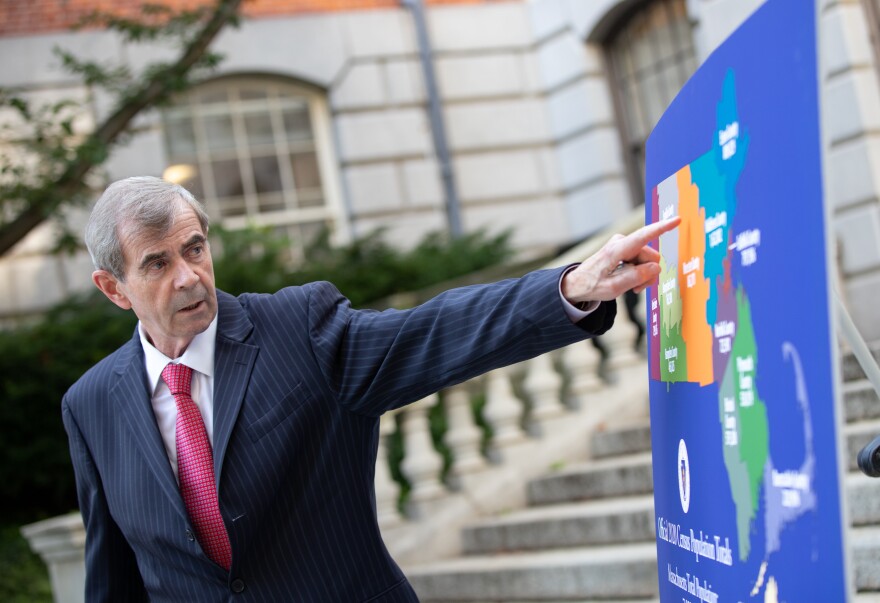Western Massachusetts is lagging the rest of the state in population growth, according to the latest U.S. census numbers. In a visit to Springfield this week, Secretary of State Bill Galvin brought attention to the region's stagnant or declining population.
Galvin said job creation is key in getting more people to live in the area. And he warned there could be implications in terms of legislative representation and funding if the population continues to lag.
Panelist Natalia Muñoz said she agrees with Galvin that economic activity will increase the population, with a caveat.
"But I don't agree that that's something that needs to happen," she said. "The fact that the numbers went down in western Massachusetts — OK, they did. It doesn't mean we're in crisis, does it? That has not been proven yet. So I'm not concerned about the census being lower, or districts being redrawn because of a lower population."
Some good news out of the census: Springfield's population grew by nearly 2%, keeping it safely above 150,000 — a key number for federal funding.
Panelist Matt Szafranski said he's not entirely surprised Springfield saw a modest bump when so many other places in Hampden County stayed the same or lost population.
"It shows that there is still better economic activity in some part of western Massachusetts," he said. "I mean, generally speaking, Greater Springfield held on, whereas there [were] declines outside of Greater Springfield in western Massachusetts."
Szafranski said the Springfield stat is also reflective of the city being an affordable place to live, compared to the rest of the area.
"If you are looking to buy your first home," he said, "and you don't necessarily have some other concerns about living in Springfield that some people may have — fairly or not — it's a good place to start off. So, I mean, there's an upside to this. I think what we did see, however, is that Worcester's growth over the last year showed that old industrial cities have potential, if -- to Galvin's point -- they're given that economic support from the state."
Also this week, with the Taliban now in control of Afghanistan, more than 70 Massachusetts legislators are urging the state's congressional delegation to help safely evacuate Afghan allies. The letter was authored by state Senator John Velis, who is a veteran of two tours of duty in Afghanistan. He said thousands of the allies were the eyes and ears of the U.S. military on the ground.
Velis says the Afghan allies need to be evacuated to U.S. bases elsewhere, then processed for visas, because the alternative would be "an absolute massacre."
Governor Charlie Baker has pledged his support, and said Massachusetts stands ready to assist any Afghan refugees seeking safety in the U.S.
Shifting to COVID-19 — this week, governors in the region put into place vaccine mandates for state employees. Ned Lamont in Connecticut is ordering all employees and teachers to get vaccinated, or submit to weekly testing. Some health care workers would be forced to get the shots.
In one of the toughest moves in the nation, Charlie Baker in Massachusetts is mandating about 40,000 workers in the executive branch be vaccinated, period, or risk losing their jobs.
Finally, this week, a group of employees at the Holyoke Soliders' Home have sued five former administrators of the state-run facility for veterans. The workers who cared for residents during a deadly COVID-19 outbreak last year said they had to work under unsafe and inhumane conditions.
Guests:
- Matt Szafranski, editor, Western Mass Politics & Insight
- Natalia Muñoz, host, Vaya Con Muñoz on WHMP







